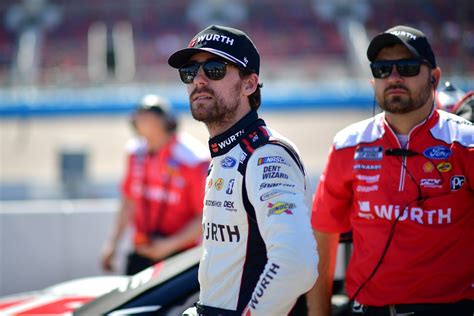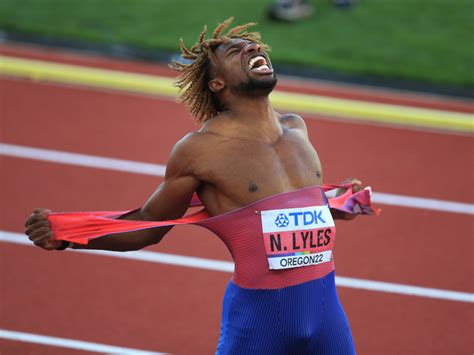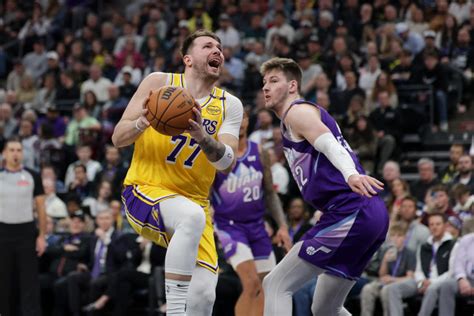
Jalen Hurts succinctly addressed the Philadelphia Eagles’ decision to skip the traditional White House visit, stating, “Their choice.” His brief comment comes after a significant portion of the team opted out of the visit to celebrate their Super Bowl LVII appearance, reflecting ongoing political divisions and personal convictions within the team.
Philadelphia Eagles quarterback Jalen Hurts offered a terse, three-word response – “Their choice” – when asked about the significant number of his teammates who chose to forgo the team’s scheduled visit to the White House to commemorate their Super Bowl LVII appearance. The visit, typically a celebratory tradition for championship-winning sports teams, was noticeably impacted by player absences, highlighting the complex intersection of sports, politics, and personal beliefs.
While the White House visit is generally viewed as a ceremonial occasion to honor athletic achievements, it has increasingly become a platform for athletes to express their political stances or personal convictions. In recent years, several teams and individual players have declined invitations, often citing disagreements with the current administration’s policies or a desire to avoid politicizing sports.
Hurts’ concise response, while not elaborating on the reasons behind his teammates’ decisions, acknowledges their autonomy and underscores the diverse viewpoints within the Eagles organization. The quarterback’s leadership has been lauded for his ability to unify the team despite varying backgrounds and beliefs, and his comment reflects a respect for individual choices within a team-oriented environment.
The Eagles’ Super Bowl LVII journey culminated in a narrow defeat against the Kansas City Chiefs, but their remarkable season still warranted recognition. The White House visit offered an opportunity for the team to be celebrated on a national stage, but the absence of key players inevitably cast a shadow over the event.
The decision by some Eagles players to skip the White House visit is not unprecedented. Under previous administrations, similar instances have occurred, with athletes using their platform to voice concerns about social justice issues, political policies, or the direction of the country. The specific reasons for the Eagles players’ decisions were varied, encompassing political disagreements, personal convictions, and a desire to avoid endorsing specific political ideologies.
The absence of prominent players from the visit raises questions about the future of the tradition and whether it will continue to hold the same significance in an increasingly polarized political climate. While some argue that the White House visit should remain a non-political event focused solely on athletic achievement, others contend that athletes have a right to use their platform to express their views on matters of public concern.
Regardless of the differing perspectives, Hurts’ response encapsulates the core issue: individual autonomy and the freedom to make personal choices. His leadership in respecting those choices, even when they differ from his own, underscores the importance of unity and understanding within a diverse team.
The Eagles’ organization has not released an official statement regarding the players’ decisions to skip the White House visit. However, team officials have emphasized their commitment to supporting players’ rights to express their views on social and political issues. The focus remains on fostering an inclusive environment where players feel empowered to make their own decisions, regardless of the potential for controversy.
The situation underscores the evolving role of athletes in society. No longer confined to the playing field, athletes are increasingly using their platforms to advocate for social change, raise awareness about important issues, and engage in political discourse. This trend has both supporters and detractors, with some arguing that athletes should stick to sports while others believe they have a responsibility to use their influence for the greater good.
Hurts himself has been involved in community initiatives and has spoken out on issues related to social justice. His actions demonstrate a commitment to using his platform to make a positive impact, but he also recognizes the importance of respecting individual choices and fostering an inclusive environment.
The Eagles’ White House visit serves as a microcosm of the broader political divisions within the country. The decision by some players to skip the event highlights the challenges of navigating these divisions in a public forum, particularly when it involves a traditionally non-political event.
The future of the White House visit as a tradition remains uncertain. As political polarization continues, it is likely that more athletes will use their platforms to express their views, potentially leading to further divisions and absences from such events. Whether the tradition can adapt to this changing landscape remains to be seen. However, the importance of respecting individual choices and fostering an inclusive environment, as demonstrated by Hurts’ response, will continue to be paramount. The incident brings to light broader conversations surrounding athlete activism, political expression in sports, and the evolving role of sports figures in contemporary society. It also highlights the ongoing challenge of separating athletic achievements from political affiliations and ideological stances, especially in an era where athletes are increasingly vocal about their beliefs.
The dynamics of team unity and individual freedom are also thrown into sharp relief. How does a team maintain cohesion when its members hold diverse and potentially conflicting views on political and social issues? Hurts’ leadership, characterized by respect for individual choices, offers a potential model for navigating these complexities. However, it also raises questions about the responsibilities of team leaders in addressing potentially divisive issues and fostering a culture of understanding and mutual respect. The absence of a formal statement from the Eagles organization underscores the sensitivity of the issue and the potential for it to further exacerbate existing divisions. While the team has emphasized its commitment to supporting players’ rights to express their views, it also faces the challenge of maintaining a unified front in the face of external scrutiny. The long-term implications of the Eagles’ White House visit extend beyond the immediate event. It serves as a case study in the evolving relationship between sports, politics, and society, and it raises important questions about the role of athletes in shaping public discourse. The incident also provides valuable insights into the challenges of fostering inclusivity and mutual respect in a diverse and polarized environment.
The incident also resurfaces debates about the responsibilities of athletes as role models. Are athletes obligated to adhere to certain standards of behavior, both on and off the field? Do they have a responsibility to use their platforms to advocate for positive change? These questions have been debated for decades, and the Eagles’ White House visit adds a new layer of complexity to the discussion. While some argue that athletes should focus solely on their athletic performance, others contend that they have a moral obligation to use their influence to address social and political issues. The absence of key players from the White House visit also raises questions about the potential impact on the team’s image and brand. In an era where corporate sponsorships play a significant role in professional sports, teams must carefully manage their public image to avoid alienating potential partners or fans. The decision by some Eagles players to skip the White House visit could potentially have financial repercussions, although it is difficult to quantify the exact impact. The incident also highlights the growing importance of social media in shaping public perceptions of athletes and teams. In the age of Twitter, Facebook, and Instagram, athletes have the ability to communicate directly with their fans, bypassing traditional media outlets. This can be both a blessing and a curse, as it allows athletes to control their own narratives but also exposes them to potential criticism and scrutiny.
The Eagles’ White House visit also underscores the importance of understanding the historical context of such events. White House visits by sports teams have become a tradition in recent decades, but they have not always been without controversy. In the past, some athletes have used these visits to protest government policies or to express their support for social causes. The Eagles’ visit is simply the latest example of this trend, and it is important to understand the historical precedents that have shaped the current landscape. The incident also highlights the challenges of navigating cultural differences in a diverse society. The Eagles roster includes players from a variety of backgrounds, each with their own unique perspectives and experiences. The decision by some players to skip the White House visit reflects these cultural differences, and it underscores the importance of fostering understanding and mutual respect. The incident also raises questions about the role of education in promoting social awareness. Should athletes be expected to be well-informed about social and political issues? Do teams have a responsibility to educate their players about these issues? These are complex questions that have no easy answers, but they are important to consider in the context of the Eagles’ White House visit.
The Eagles’ situation serves as a case study for other professional sports teams facing similar challenges. How can teams navigate political divisions within their organizations? How can they support their players’ rights to express their views while maintaining team unity? These are questions that all sports teams must grapple with in the current political climate. The incident also underscores the importance of leadership in navigating complex situations. Hurts’ response, while brief, demonstrates his ability to respect individual choices while maintaining a focus on team unity. His leadership will be crucial in helping the Eagles move forward from this incident. The incident also raises questions about the role of the media in shaping public perceptions of athletes and teams. The media has a responsibility to report on these issues fairly and accurately, without sensationalizing or misrepresenting the facts. The Eagles’ White House visit has been the subject of intense media scrutiny, and it is important to ensure that the reporting is balanced and objective. The incident also highlights the importance of critical thinking in evaluating information. In the age of misinformation and disinformation, it is crucial to be able to assess the credibility of sources and to form your own informed opinions. The Eagles’ White House visit provides an opportunity to practice critical thinking skills and to engage in thoughtful discussions about complex issues.
The incident also raises questions about the future of sports in society. Will sports continue to be a unifying force, or will they become increasingly divided along political lines? The answer to this question will depend on how athletes, teams, and fans choose to engage with each other in the years to come. The Eagles’ White House visit is just one small example of the challenges facing sports in the 21st century. But it is an important example, and it provides valuable insights into the complex relationship between sports, politics, and society. The incident also highlights the importance of empathy in understanding different perspectives. It is easy to judge others based on their choices, but it is more important to try to understand their motivations and to see the world from their point of view. The Eagles’ White House visit provides an opportunity to practice empathy and to learn from each other. The incident also raises questions about the role of forgiveness in healing divisions. It is easy to hold grudges and to harbor resentment, but it is more important to find ways to forgive each other and to move forward together. The Eagles’ White House visit provides an opportunity to practice forgiveness and to build stronger relationships.
The Eagles’ situation also highlights the importance of communication in fostering understanding. Open and honest communication is essential for building trust and resolving conflicts. The Eagles’ White House visit underscores the need for athletes, teams, and fans to communicate effectively with each other. The incident also raises questions about the role of respect in building a civil society. Respect for different opinions and beliefs is essential for maintaining a healthy democracy. The Eagles’ White House visit provides an opportunity to practice respect and to promote civility. The incident also highlights the importance of responsibility in exercising freedom. With freedom comes responsibility, and it is important to use our freedom wisely and to consider the consequences of our actions. The Eagles’ White House visit underscores the need for athletes, teams, and fans to exercise their freedom responsibly. The incident also raises questions about the role of justice in ensuring fairness. Justice requires that everyone is treated fairly and equally, regardless of their background or beliefs. The Eagles’ White House visit provides an opportunity to advocate for justice and to promote equality. The incident also highlights the importance of peace in resolving conflicts. Peace requires that we find ways to resolve our differences without resorting to violence or aggression. The Eagles’ White House visit underscores the need for athletes, teams, and fans to promote peace and understanding.
The Eagles’ White House visit also underscores the importance of hope in facing challenges. Hope provides us with the motivation to keep going, even when things are difficult. The Eagles’ White House visit highlights the need for athletes, teams, and fans to maintain hope and to believe in a better future.
Frequently Asked Questions (FAQ)
1. Why did some Philadelphia Eagles players skip the White House visit?
The article states that the specific reasons varied, encompassing political disagreements, personal convictions, and a desire to avoid endorsing specific political ideologies. The decision reflects a broader trend of athletes using their platform to express their views on social and political issues.
2. What was Jalen Hurts’ response to the players skipping the visit?
Jalen Hurts’ response was concise: “Their choice.” This statement acknowledges the individual autonomy of his teammates and respects their decisions, regardless of their personal reasons.
3. Has this happened before with other sports teams visiting the White House?
Yes, the article mentions that similar instances have occurred under previous administrations, with athletes using their platform to voice concerns about social justice issues, political policies, or the direction of the country. It is not an unprecedented situation.
4. What does this incident say about the role of athletes in society today?
The article suggests that athletes are increasingly using their platforms to advocate for social change, raise awareness about important issues, and engage in political discourse. This trend has both supporters and detractors, raising questions about the responsibilities of athletes as role models and public figures.
5. How might this impact the future of White House visits by sports teams?
The article posits that as political polarization continues, it is likely that more athletes will use their platforms to express their views, potentially leading to further divisions and absences from such events. Whether the tradition can adapt to this changing landscape remains uncertain. It could possibly lead to a re-evaluation of the criteria for inviting teams or a modification of the event itself to be more inclusive and less politically charged.









